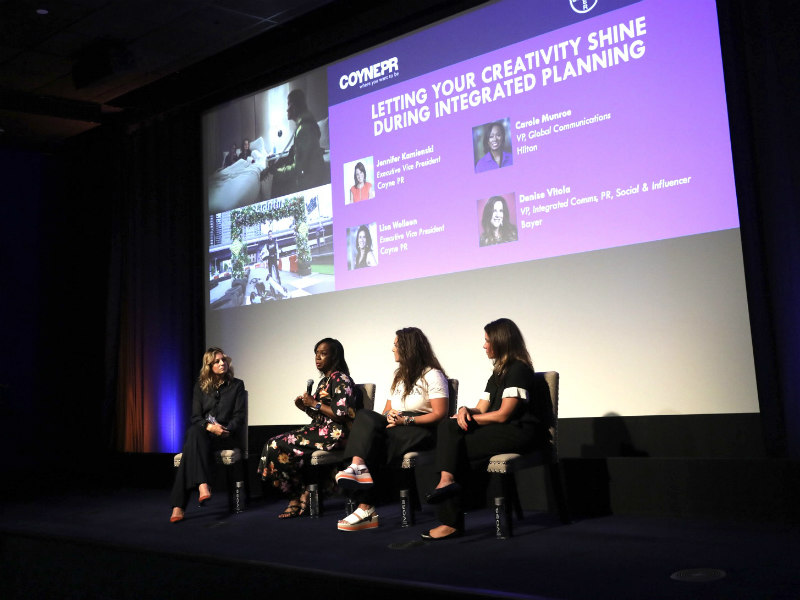Arun Sudhaman 04 May 2023 // 11:31AM GMT

NEW YORK — Predictive outcomes can help PR ideas better compete when it comes to integrated campaign planning, heard delegates at Tuesday's PRovoke North America Summit in New York.
In a panel discussion that focused on how public relations is often an afterthought when brands plan their integrated work, Hilton global communications VP Carole Munroe advised industry professionals to "start at the end", with the predictive outcome that their ideas can lead to.
"How do you want this to show up with the media and consumers?" asked Munroe, noting that being upfront about outcomes can work in PR firms' favour. "It makes it real. It cuts out all of the fuzziness about it."
However, Munroe cautioned that this approach required PR people to become more comfortable in terms of "leading with data."
"Do your research to lead with data and data points that everyone in the room has in common," said Munroe. "Using data that helps you tell a very specific story is a strength."
That kind of thinking, added Coyne PR EVP Lisa Wolleon, becomes even more required given the "different levels of understanding of earned media, influencer and social" when it comes to client side marcomms teams. "Predictive outcomes give them a very good sense of how the plan comes to life."
But it also requires a level of honesty that is not always apparent among integrated campaign teams, said Bayer integrated comms, PR, social and influencer VP Denise Vitola.
"The best work will come out of a level of honesty," said Vitola, wondering why direct feedback is often frowned upon. "Why has no one said that these ideas are not good? The ideas that are the most obvious are the ones that work the best."
Vitola believes agency professionals can make a significant difference on the client side, and often prefers to hire them for her own in-house teams. But she advised PR firms to ensure their agency partners are being constantly educated if they hope to win the day with their ideas.
"Don’t get frustrated and spend some time educating your agency partners so that ideas are going to be what you’re mostly focused on," said Vitola. "If you do that your ideas will rise."



































.jpg)

















